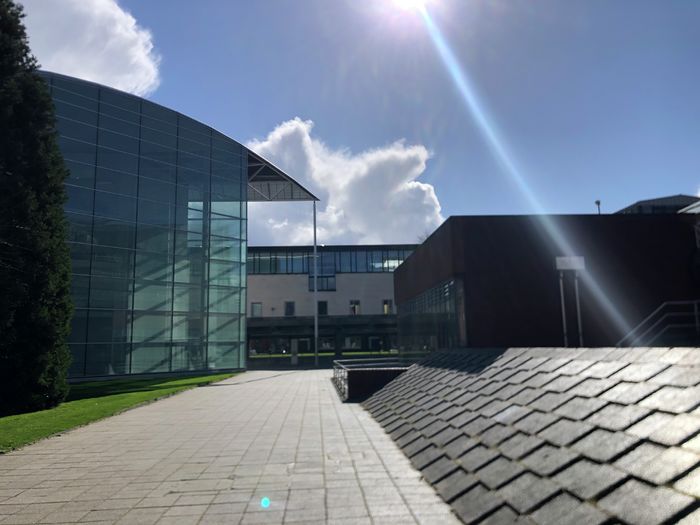What anthropology can teach us outside the classroom
Viewing the world as an anthropologist might just provide the empathy our polarised world needs, argues Luca Chandler

As a HSPS student, people often accuse me of speaking gibberish. In the social sciences, there is a tendency to use the most overtly pretentious language possible. But, if you peep through the looking-glass, there are pools of valuable information to be absorbed.
Anthropology offers a distinct approach to theory and hard, tangible research. Traditionally, the anthropologist has been one who imposes their own concepts and understandings onto their research. Yet, turning this familiarising process on its head offers us a better way to understand both ourselves and those seemingly alien. Rather than making the strange familiar, a reflexive approach allows us to make the familiar strange. Only through this methodological revolution can we re-evaluate our own assumptions.
This sounds pretty dense. Yet, behind the veil of intellectual jargon lies a way of thinking that I believe to be integral for the way people should go about their lives. By taking what people have to say seriously, empathising with their perspectives, we can foster a culture of understanding. In such a heated, polarised political environment, this provides us with a new, hopeful starting point.
Take the MAGA voter. Characterised by their lunacy, the image we see from across the pond is tinged with a lack of sympathy for the crazy Christian Evangelists. How on earth could America vote for a narcissistic, exploitative convicted felon? Well, they did. Now that Trump is storming the White House for a second time, we have to reflect on why Trump resonates so deeply with the American electorate.
“In such a heated, polarised political environment, this provides us with a new, hopeful starting point”
You could point to some kind of nostalgia for the world that once was, pre-pandemic, or a feeling that the incumbent has left the working class, Southern Christian voter behind. The Latino vote’s 14-point swing towards Trump has also greatly complicates this image. As we process these changes, it is important to recognise the Trump voter does not look like the caricatures of 2020. Diving into specifics goes far beyond the reach of this article. But, what remains integral to analysing this situation is understanding these voters not as maniacs, but ones who need their views to be taken seriously – even if it is a hard pill to swallow.
Bringing this closer to home, a similar pattern can be recognised. Reform UK’s voter base is oftentimes depicted as xenophobic and uneducated. Yet, an anthropological perspective can look beyond these surface-level depictions.
By seeking to understand the lived realities of those drawn to Reform UK’s brand of nationalist, anti-establishment politics, we might gain insights into the deeper social and economic tensions shaping the UK’s political landscape. Perhaps there are legitimate grievances around issues like immigration, globalisation, or the perceived disconnect between Westminster and local communities that have fuelled this backlash. An empathetic, nuanced analysis informed by the anthropological method could help bridge the divides, rather than widen them through facile dismissals.
The anthropological method also has use beyond looking at these larger, existential, issues. Take something as simple as stepping into the working world. Whether window dressing or not, both the public and private sector are putting a premium on creating teams of people with diverse backgrounds and ways of thinking. I am a strong believer in fostering this diversity. Taking their views seriously, working in a team towards a desired outcome, reflecting on your own values by engaging with their different approaches is a fundamental stepping-stone towards a more equitable workplace. Just as you could study witchcraft in anthropology, as wacky as it may sound, using others’ realities to break down your own preconceptions brings us together.
“Anthropology’s value extends far beyond the ivory towers of academia”
Anthropology’s value extends far beyond the ivory towers of academia. While its terminology may sometimes seem impenetrable, its core methodological insights offer us vital tools for navigating our increasingly complex and divided world. By teaching us to make the familiar strange and to take seriously perspectives that differ from our own, anthropological thinking provides a framework for meaningful engagement across difference – whether in the workplace or the political sphere.
This approach is not merely theoretical; it offers practical solutions to some of our most pressing contemporary challenges. In an era marked by polarisation and mutual incomprehension, the anthropological method reminds us that understanding often begins with the willingness to step outside our own preconceptions. It suggests that the path forward lies not in dismissing those we disagree with, but in making the effort to comprehend the lived realities that shape their worldviews.
Call me an idealist all you want, but I am a firm believer that we can build a better world using this approach. This better world starts with looking around us, then looking into ourselves.
 News / CUP announces funding scheme for under-represented academics19 December 2025
News / CUP announces funding scheme for under-represented academics19 December 2025 News / Cambridge welcomes UK rejoining the Erasmus scheme20 December 2025
News / Cambridge welcomes UK rejoining the Erasmus scheme20 December 2025 Film & TV / Timothée Chalamet and the era-fication of film marketing21 December 2025
Film & TV / Timothée Chalamet and the era-fication of film marketing21 December 2025 News / SU reluctantly registers controversial women’s soc18 December 2025
News / SU reluctantly registers controversial women’s soc18 December 2025 News / News in Brief: humanoid chatbots, holiday specials, and harmonious scholarships21 December 2025
News / News in Brief: humanoid chatbots, holiday specials, and harmonious scholarships21 December 2025









